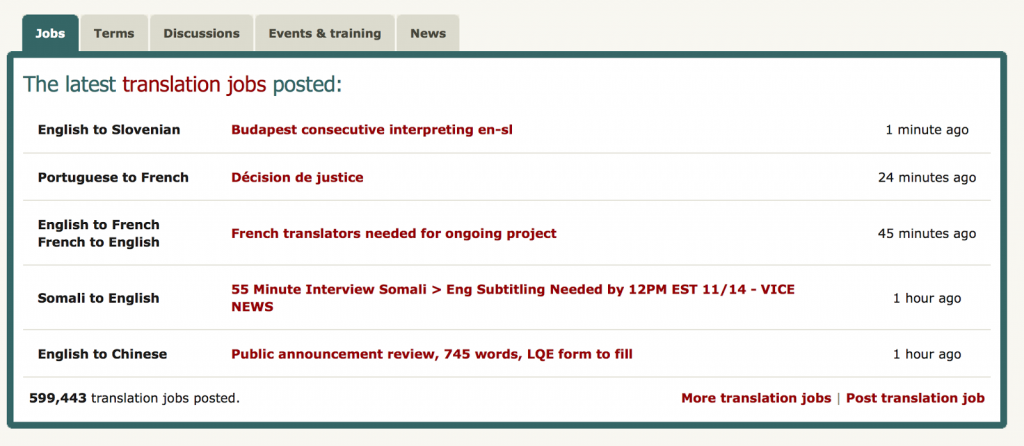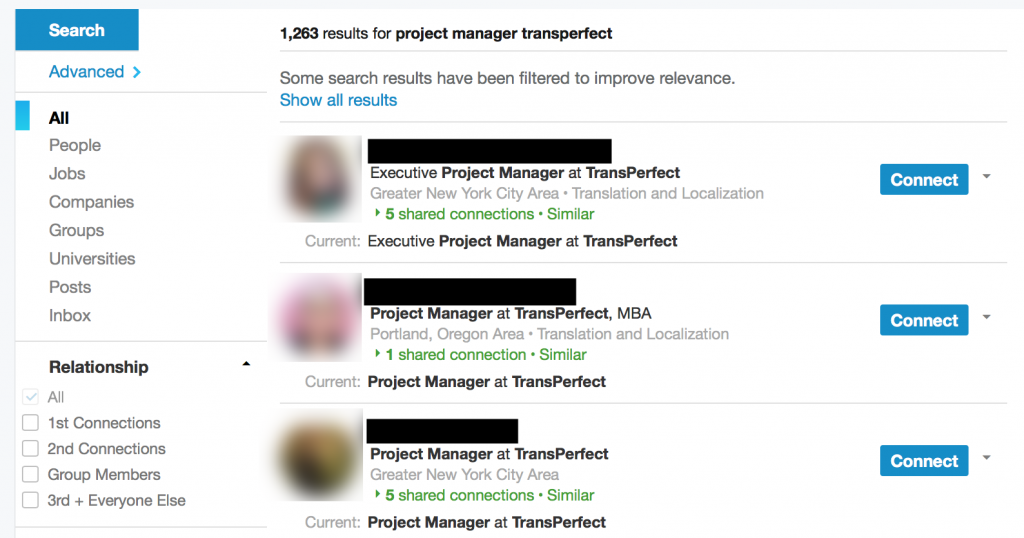Traveling Jobs: Get Paid to Travel Using Your Language Skills
Have you ever dreamed of hopping on a plane and seeing the world but asked yourself “How am I going to pay for it?”
Don’t worry, there is a way to fund your travel adventures that doesn’t involve spending your savings or draining your bank account.
You can be paid to travel the world.
The good news is your passion for languages may be your golden ticket to finding jobs that travel. Whether you’re an advanced language learner or a beginner, there are plenty of opportunities to make money using your native and foreign language skills.
I’ve spent the last nine years working remotely and using my language skills to make a living.
In this blog post, you’ll discover:
- The secret to finding paid online language jobs that allow you to work from anywhere in the world, take extended vacations, or even work from home.
- How you can land online language jobs even if you don’t have previous experience working remotely.
- How to use the “Foot in the Door Strategy” to start making money with your language skills within days, not weeks.
So, how to make money and travel?
A note from the Fluent in 3 Months team before we get started: You can chat away with a native speaker for at least 15 minutes with the "Fluent in 3 Months" method. All it takes is 90 days. Tap this link to find out more.
Traveling Jobs: The World is Your Office
The number of freelancers, contractors and temp workers is on the rise worldwide. By 2020, more than 60 million of the workforce in the U.S. alone will be contingent workers according to the personal finance company Intuit. That means the golden opportunity to be your own boss and live a remote lifestyle is only going to increase.

Earning money while traveling is actually a lot easier than most people think. There has never been a better time to start working remotely and using your language skills to make money on the side. With technology, work is no longer tied to a specific location. The internet has granted us the opportunity to work from a laptop virtually anywhere in the world.
The truth is, you don’t have to be rich to afford travel. Many of these language jobs can fund your adventures. No matter what languages you speak, there’ll always be a way to cash in on your language skills and work from wherever you please.
There are more opportunities than ever out there. The key is knowing how to find them.
Travel Jobs: How to Get Your First Assignment
It’s easy to overcomplicate things when it comes to finding online language jobs. Most people start off on the wrong foot by making a website, logo and business cards. These things all have a time and place but they won’t get you clients and they certainly aren’t necessary when you’re just getting started.
To land your first gig within days, in the beginning you should take stock of your skills and aim for:
- Short assignments you can complete, so you don’t get in over your head.
- Jobs that don’t require highly specialised technical skills you don’t have.
- Work that will let you leverage your existing skills from past jobs, education, hobbies, etc.
By looking for online jobs that fit this criteria, you’ll quickly build a reputation and a portfolio. Clients will begin to recommend you to other clients, and it becomes easier and easier to find work.
The Different Types of Online Language Job that Let You Travel the World
Before you pack your bags, first you need to find the right online language job to fund your trips.
Exactly how do you find these elusive online language jobs? To help you cut through the clutter of job postings, I’ve put together a list of flexible gigs that can be done from anywhere.
I’ve also included links to online marketplaces where you can find your first gigs.
Web Developer/Programmer
If you have a passion for coding and technology, then working as a web developer or programmer is a great way to make money while you travel.
Web development and programming is a highly in-demand skill, and it's not limited to one specific location. As long as you have a laptop and internet connection, you can work from anywhere in the world.
You don't need to have a formal degree in computer science to be a web developer or programmer. There are plenty of online resources and tutorials that can help you learn the basics, and many companies are willing to hire people with a strong portfolio and experience (I can wholeheartedly recommend Zero To Mastery if you want to be hired as soon as possible).
If you're looking for a web development or programming job, there are a number of online marketplaces like Upwork and Freelancer where you can find a variety of projects. These marketplaces are a great way to connect with clients from all over the world and start building your portfolio.
Online Language Teacher
No matter what your native language is, there is someone out there with a desire to learn it. The best part is you’ll have a flexible schedule and you can work from the convenience of your own home or preferred workplace.
When students are looking for a foreign language teacher, the internet is the first place they turn to. Teaching online is a great way to earn money on the side while you travel.
You don’t always need to have formal credentials to teach. Most students are looking for someone to practice basic everyday conversation with. If teaching online appeals to you, there are online platforms like italki where you can sign up to give paid lessons.
Voiceover Artist
If you’ve ever been told you have a great voice, then working as a voiceover artist will be a great way to cash in on your talent.
There are a variety of reasons a voiceover artist in your native language may be needed. For example, educational training, product videos, video games, and even those annoying phone recordings you hear while you’re on hold. No matter where you are, you can record remotely from your hotel or Airbnb, since almost all of your clients will be virtual.
Will you need to be lugging around thousands of dollars worth of sound equipment? Not at all! You don’t need to be a recording studio tech-guru these days. All you need is a laptop, recording software and a mic. There are a number of online marketplaces, like VoiceBunny and PeoplePerHour where there are projects available today.
Location-Independent Translator
If you’re serious about becoming a location independent translator you can get started in less time than you think.
Translation is a multi-billion dollar industry and there are plenty of pieces of the pie to go around. With that being said, it does require skill. Being fluent in another language doesn’t make you a translator any more than having hands makes you a surgeon.
Outside of technical and highly specialised translations, there are a variety of translation jobs available no matter your skill level. In general, translators only translate from a foreign language into their native language.
It’s extremely useful to specialise and translate a subject matter that you’re well versed in. That means if you absolutely hated science in high school, don’t offer to translate projects on molecular biology.
So, what are the upsides of working as a freelance translator? For one thing, it’s 100% remote. You have the freedom to work when you want, wherever you want. If you’d like to get your feet wet in the translation industry, it’s best to go where the clients are, instead of trying to nail down your work. Start off small by using translation job boards for your first few gigs, like ProZ or TranslatorsCafé.com.

Many of these translation jobs are entry level and are a great way to build your experience in the industry. This was the chosen path of yours truly and over time I was able to build my skills and eventually work as a full-time freelance translator.
Travel Writer
Who wouldn’t want to be paid to write while traveling to exotic destinations? Especially if you’re a native English speaker, there plenty of opportunities to share your travel adventures and there are many publications that will pay you for your stories.
You can write travel guides for tourism websites, share tips on destinations, and write articles for travel blogs. In fact, you don’t need formal education, training, or years of experience to make a living writing.
All you need to have are interesting travel stories that will inspire readers. You can cash in by writing for publications such as Wanderlust and AFAR.
Language Tester
One of the many jobs I’ve done to capitalise on my language skills is working as a language tester. Many companies and government institutions rely on the language skills of employees.
As a language tester, you work in your native language, verifying that candidates are able to communicate at working proficiency. This includes reading and grading written passages or evaluating the candidate’s oral fluency over the phone. The best part is many of these assignments are long term and can supplement your income as you travel.
Language testers are 100% remote. You don’t always need to have a language testing certificate or credentials. I certainly don’t and continue to work as a language tester. Language testing positions can be found on freelance marketplaces such as Upwork.
Copywriter
If you’re able to write clear, concise, compelling copy in your native language, then you might want to give copywriting a shot. Copywriting is a form of marketing designed to get people to take some form of action through persuasion.
Copywriters write everything from blog posts to product descriptions, to website copy. If you’re planning on traveling and working remotely, there are many opportunities to earn from your writing.
Native English copywriters are especially in demand by companies trying to break into English-speaking markets, including the U.K., North America, and Australia.
You can directly pitch your copywriting services to these companies or go through one of the many freelance marketplaces where thousands of jobs are waiting to be completed.
Bilingual Virtual Assistant
If you have great organizational skills and have worked in an administrative setting, then working as a bilingual virtual assistant is a great way to merge your existing skills and language capabilities.
Tasks may include providing anything from scheduling interviews to handling social media accounts.
You can find virtual assistant jobs on websites such as FlexJobs.

If relying on freelance gigs isn’t your thing and you’re looking for part-time or full-time remote opportunities, then working as a bilingual virtual assistant may be for you since you’ll earn a steady paycheck as you travel the world.
Customer Service Representative
There have been numerous occasions where I have traveled and found myself in need of a customer service representative who speaks my native language.
Just this summer I was in Playa del Carmen trying to track down my cab which was running late to take me to the airport. I was put on hold on the phone and I breathed a sigh of relief when I was connected to an English speaking customer service agent.
Companies like IBM, Amazon, and American Express offer remote customer service jobs. Many of these companies are trying to save the huge cost of operating a call center.
Pay is anywhere from $14 to $16 an hour, which may not sound like much but will be more than enough when you minimise expenses or travel to countries where the cost of living is lower than it is back home. There are part-time and full-time positions that will let you work from the comfort of your Airbnb or hotel.
How to Use the “Foot-in-the-Door Strategy” to Find Travel Jobs Within Days
Finding remote work doesn’t have to be a painfully slow process. In fact, you can find many of these jobs within a matter of days.
If you’re new to the world of freelancing there is an easy three-step process I like to use called the, “Foot-in-the-Door Strategy.”
By using the Foot-in-the-Door Strategy you can shave weeks, if not months off the prospecting process. All you need to do is:
- Determine which job you’d like to do
- Find a freelancer already working for that company
- Send a short email to pick their brain
Let’s say you’re trying to break into freelance translation. Maybe you’ve sent dozens of resumes before, but you didn’t get a call back from translation agencies.
Instead of randomly applying to agencies you can simply go on LinkedIn, find and contact freelance translators or project managers already working for that company and send them a message.

The filters on the left can be used to narrow down your search. You can sift through the search results by geographical location, shared connections, or group members.
Once you identify the people you’d like to contact, send a message – I recommend keeping it to 90 words or less. It only takes a split second for someone to decided whether they’re going to read your message or delete it. Sending a long-winded message is a surefire way to get your request overlooked. For that reason, keep it short and sweet to maximise your chances of getting a response.
The Foot-in-the-Door Strategy is a great way to get some insider information. It also helps you land work faster if you’re trying to break into the translation industry because you are directly connecting with the people who can point you in the right direction to getting your first translation project. It’s always better to learn from others instead of figuring things out on your own.
You can say something along the lines of this:
John,
I came across your LinkedIn profile during my search of the translation industry. I’m an aspiring translator and I’d really like to hear what your experience as a freelance translator has been like, especially having worked for AA Translations.
Let me know if you have 5-10 minutes to spare, I’d like to hear your opinion. We can set up a time to talk. Let me know if that’s possible.
Best regards,
Maryam Abdi
As you can see, the message is highly relevant to the receiver and gets straight to the point. It clearly shows that you’ve done your homework.
Once they agree to talk, you can chat over email or set up a phone call. Ask open-ended questions about their experience working with the translation agency, the type of projects they work on, and their likes and dislikes about the agency you’d like to work with.
Naturally, the conversation will bounce back to you. Use this as an opportunity to express your interest in working with the agency and ask for an introduction to a recruiter.
You Can Earn a Living While You Travel the World
One of the biggest obstacles that stand in the way of most people’s travel dreams is money. And by cashing in on your language skills, you can keep your travel adventures going for months, even years, like I have.
Working while you travel doesn’t mean you have to stick to one job. The beauty of remote work means you can clock in from your laptop and easily make the world your office. To keep the money rolling in as you travel, it’s best to diversify and squeeze every drop of opportunity you have from your language skills.
Don’t put all your eggs in one basket. Instead, try to do several different language jobs simultaneously. Regardless of how popular or how small your native or foreign language is, cultivating the right mix of online language jobs can keep work flowing as you travel the world.





Social